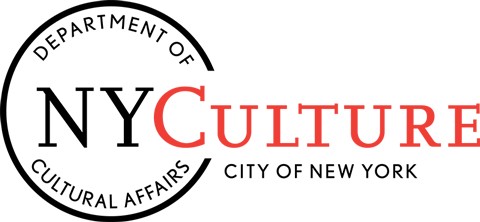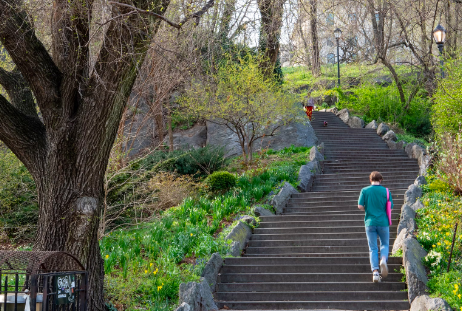the bodega project
The Brief History of a Small-Town Deli
A six-pack for the priests and darts for the devil worshippers. Eddie Joyce looks back at small town Staten Island life, then and now.
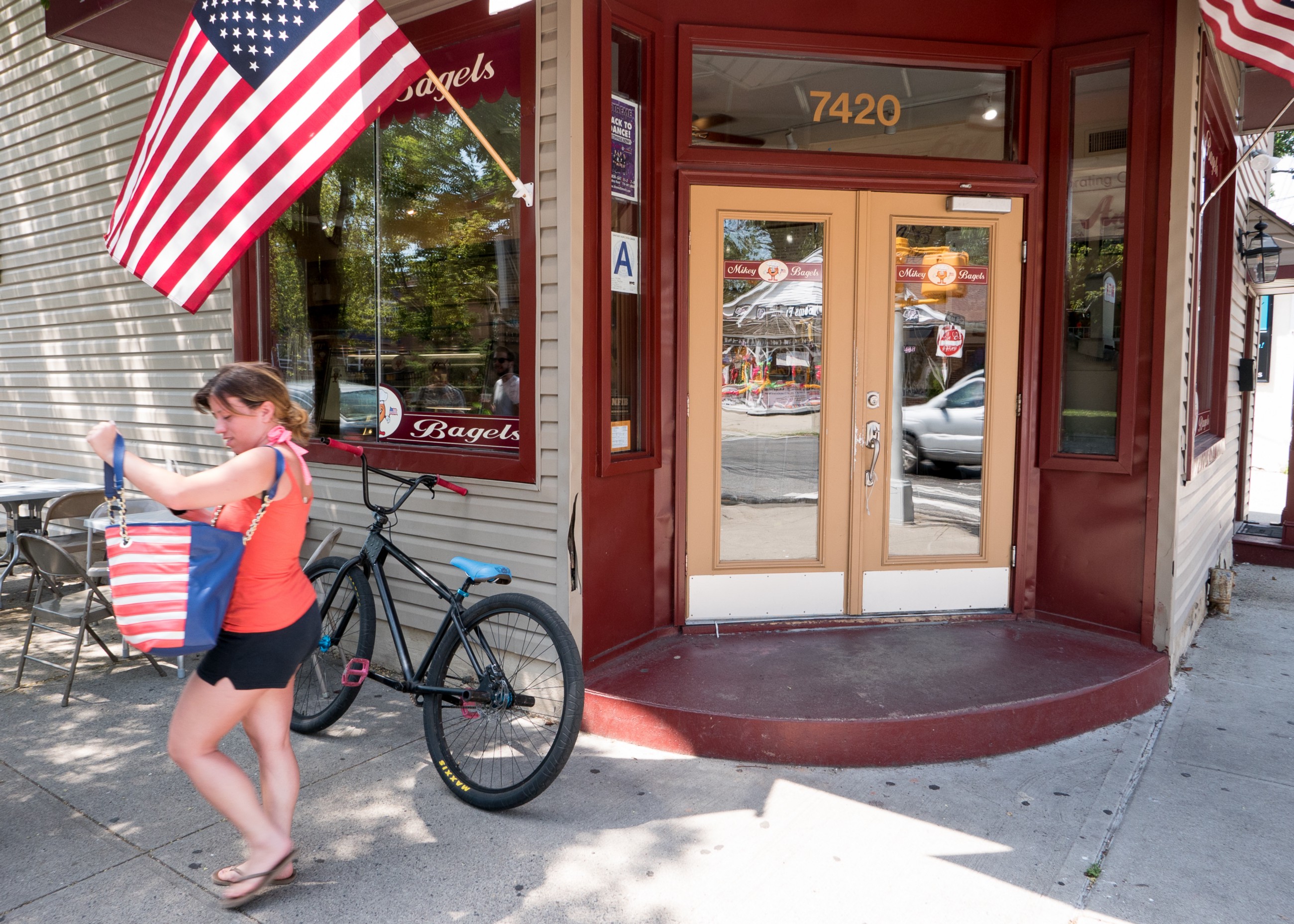
By Eddie Joyce
Presenting the eighth installment of The Bodega Project, where authors from across New York reflect on their communities through that most relied-on and overlooked institution, the bodega. Read the introduction to the series here.
I grew up in Tottenville, out on the southern tip of Staten Island, the southern tip of the state. The last town in an overlooked borough. A peninsula out past the Outerbridge, which, remarkably enough, was named for an actual person: Eugenius Harvey Outerbridge. Growing up, we always thought it was a geographic description. The bridge at the outer end. Of what? Everything. Yet somehow still part of New York City. Put it this way: if you took a small town in Indiana and filled it with New Yorkers, you’d have Tottenville. If that sounds incongruous, well, there you go.
George’s Deli was on the corner of Yetman Avenue and Amboy Road, up the block from three schools, and across the street from Our Lady Help of Christians (OLHC), an old red brick Catholic church with a single turret. Every Sunday, after noon mass, an altar boy, still wearing his white cotta and red rope belt, was dispatched to George’s to buy a six pack of Schaefer for Monsignor Brennan and Father Burke. Aspects of this story may have been apocryphal. A six-pack, for example, seems a little light.
George’s proximity to the church struck a discordant note. A darkness not so much on the edge of town but right in the heart of it. Across from the church no less. A bad element hung around there, teenagers who wore denim jackets dotted with the patches of heavy metal bands: Iron Maiden, Judas Priest, Black Sabbath. Playing video games, smoking cigarettes, and (gasp) doing drugs. Or maybe they were “on drugs.” Our parents weren’t sure. Either way, it was bad. What drugs? Didn’t matter. This was the eighties and all drugs were the same: one huge frying pan that sizzled then scrambled the egg that was your brain. As a result, we weren’t supposed to go into George’s. I only went in there on Saturday mornings, after basketball practice, to get a quarter water and a pack of gum. It was dark inside, even during the day; the video games in the back glowed with alluring light. The floors were wooden and a cat strolled around, up on the counter and back behind the register. Being in there by myself gave me an illicit charge; years later, I would feel a faint echo of it whenever I walked into a bar by myself in the middle of the day. Looking for trouble, as my mother might say.
In 1985, when I was in the fifth grade, a fire destroyed the old church. We watched it happen from our classroom down the block, black smoke billowing out of the elongated windows on its side. The fire was found to be the result of an electrical issue but the bad element from George’s was blamed. If they were on drugs, they were probably pyromaniacs too. They watched the fire as well, from across the street. They gathered outside George’s, skipping school, laughing. I remember watching them laugh and thinking they were evil. Not just bad but evil, like the devil. Only an evil person could laugh at a burning church.
(I was an altar boy in training at the time. Pure as the driven snow. Puberty, with all its occasions of sin, was mere months away. By the time it arrived, mass was being held in the school gym and I was an actual altar boy, on the long road to lapsed. To this day, I blame that fire for my fall away from the faith and by illogical extension, the bad element outside of George’s. Those fire-starting, drug-addicted, heavy-metal-head, Satan worshippers.)

Some time after the fire, I was with a friend who wanted to go into George’s. This friend was bolder than me and I didn’t want to seem timid in front of him. In we went. The store was empty. We took our time, checking out the video games before buying Yahoos and Yodels. (The adolescent version of pairing Cabernet with a ribeye.) We walked out of the store and turned right, in the direction of my house. By the time we saw them, it was too late. A large group gathered around the dumpsters behind the deli. We put our heads down, hoping to pass unnoticed. No such luck.
“Hey carrot top,” one guy said, stepping out in front of me. I’d seen him before. He was burly, had a mustache. He was old, even for this group, almost a grown up. One of his eyes wasn’t right; it curled into the corner near his nose. He was holding a small dart with a red plastic flight. He stepped very close to me. He raised his hand, pumped his arm, like he was going to throw the dart in my face. I flinched. His friends laughed.
“I’ll throw this in your eye,” he said, pumping again. I stumbled back. He smiled. We walked away, trying not to look too nervous, but I was scared shitless. My knees kept knocking into each other.
I never went into George’s again.
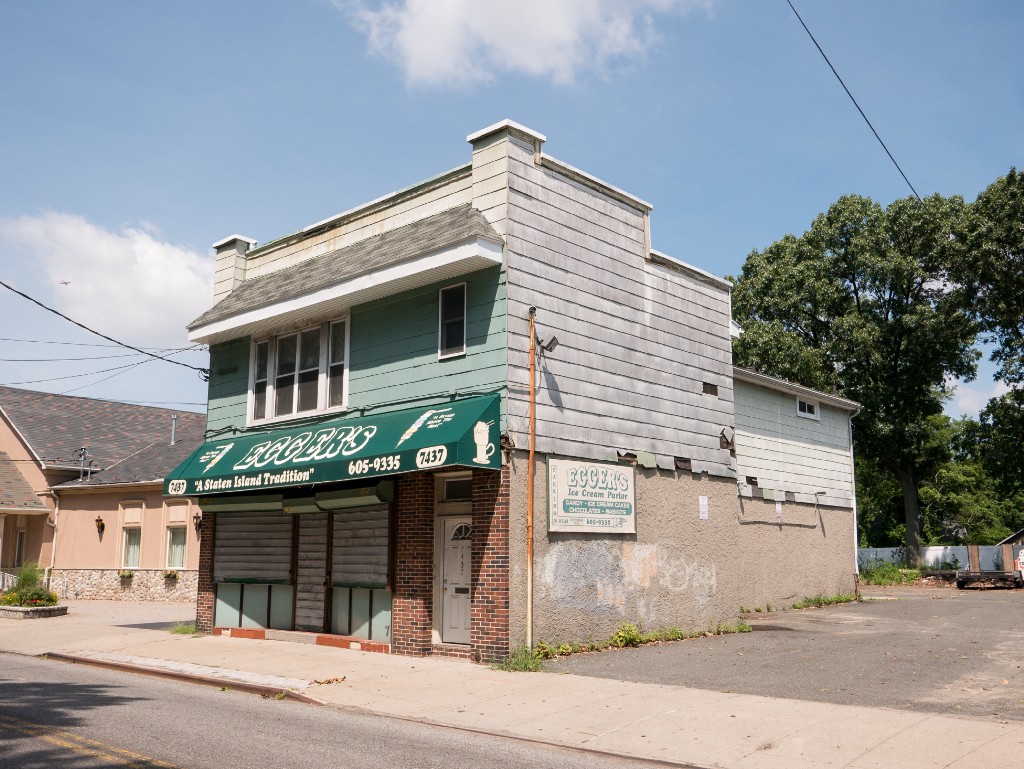
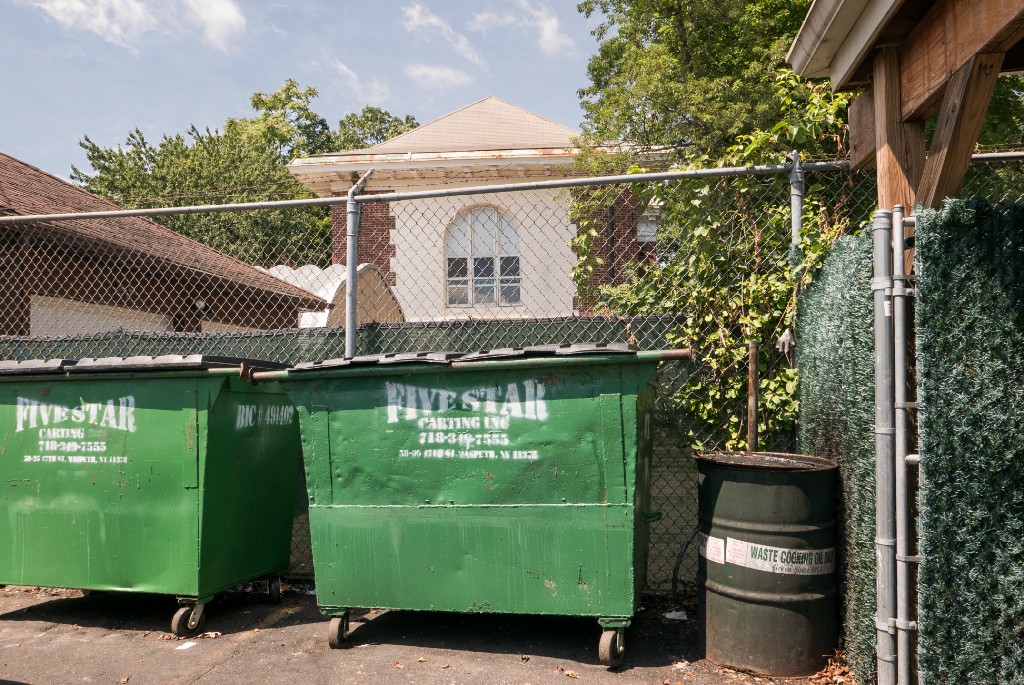
Years went by. I became a teenager, grew tall, broadened out. After a while, I didn’t go into George’s not because I was scared but because there was no need to go.
Also, it was no longer George’s. It was now called Rose & Paul’s Deli, though in a hurried, slurry Staten Island accent, it sounded like Rosenpalz, some Shakespearan character who didn’t make the final cut in Hamlet. (Even when it was George’s, I never associated it with the name George. In my head, it was Georgia’s, like the state, which made a certain sense. It was a place, not a name.) Rose & Paul’s was a cleaned up cousin of George’s, but sold the same fare: after-school snacks, milk and bread, beer.
The summer before I left for college, I got a job as a cleaner at my old intermediate school, IS 34. Over the summer, public schools get a once over: stairwells painted, floors waxed, classrooms cleaned. The other guys — the school’s janitors during the year — viewed me with an understandable mix of distrust and disdain. I wasn’t much use and I asked too many questions. We worked in the mornings and after lunch, well, everyone went their separate ways. I went to the gym to shoot jumpers. I didn’t see anyone again until five when I punched myself out and one of them punched everyone else out. This happened every day, except on Fridays.
On Fridays, we all went to the library after lunch. One of the janitors, Whitey, who liked me, sent me up to Rose & Paul’s to buy a case of cold Budweiser tall boys. The first time, when I balked, he told me to say it was for Whitey. Sure enough, when the woman behind the counter saw me carry a case of beer up to the counter, she asked me for ID, a scowl on her face.
“It’s for Whitey,” I said.
“Oh, okay,” she said, taking the twenty he’d given me. “Tell him I said hello.”
I’d carry the case back and we’d sit in the library with the windows open, drinking beer while Whitey told stories. Around four, they’d call it a day, ask me to punch them all out. (I guess they trusted me more after a few beers.) Whitey took home whatever beer hadn’t been finished. They lined the empties up on one large table, in the corner of the room. I didn’t drink much at the time, especially during the day. (College, with all its occasion for sins, was mere months away.) But I nursed a beer or two, to feel like part of the crew. After I punched everyone out, I went back to Rose & Paul’s and bought a pack of gum. I chewed every piece while I walked home, hoping it was enough to cover the smell of beer on my breath.
I’d carry the case back and we’d sit in the library with the windows open, drinking beer while Whitey told stories.
This happened all summer, every Friday. The empties piled up, until the entire table was covered. It worried me, that pile of empty beer cans. I kept thinking the kids would come back to school early and see it. But on the Friday before Labor Day, a few days before I left for college, Whitey dragged two large gray garbage cans into the library. He placed them at the end of the table and pushed all the empties into them. A few fell on the floor, spilling beer, but a quick mop with some ammonia and that was that. Good as new.
“And that’s how you do it,” Whitey said, winking at me. It felt like some hard-earned wisdom was being passed along, though to this day, I couldn’t tell you what it was.
I left Tottenville the next week. Not forever though it felt like it. I was only in Rose & Paul’s one other time. The following summer, I tried to buy a case of beer, using the “it’s for Whitey” trick. But it doesn’t work at ten on a Saturday night, especially when you’re already drunk.


Rose & Paul’s is now Mikey Bagels. (Every deli on Staten Island, it seems, has some association with bagels. Bagel stores have spread across the Island the way bodegas have spread across the rest of the city.) Last week, I stopped in to see it. The store is bright and open with big windows and a handful of tables. On a Wednesday midmorning, it was doing a brisk business: moms chatting over coffee, teachers tucking in to grab tall cans of Arizona iced tea, blue collar workers ordering egg sandwiches. At the far end, where the video games used to be, a television, turned to ESPN, hung over the coffee makers. The attire was working class casual: sweatpants and jean jackets.
Not a bad element in sight. The drugs, however, are definitely there. Tottenville — like all of Staten Island, like almost every working class white part of the country — has been devastated by the opioid epidemic. Before I stopped at the store, I drove around the town for a while, saw a handful of strung out guys strolling the streets. I haven’t lived in Tottenville for twenty years but it was still unsettling. And when it’s widespread as it is, you can’t blame a bad element.
I drove around the town for a while, saw a handful of strung out guys strolling the streets. I haven’t lived in Tottenville for twenty years but it was still unsettling.
My mood improved at the store. I bought a cup of coffee and eavesdropped as the moms one table over debated the merits of having a pool in the backyard versus joining the South Shore Swim Club. An old friend, a teacher at IS 34, stopped in to get a snack. We hugged. She’s the librarian now, works in the same room where Whitey lined up all those empties. She asked after my family and I asked after hers. We promised to get together, the way old friends do even when they know they won’t. She had to run back to school for a meeting. I walked out a few minutes later, took my coffee to the car and drove back to Brooklyn.

About the Author
Eddie Joyce is the author of Small Mercies. He is working on his second novel. He was born and raised on Staten Island. He lives in Brooklyn with his wife and three daughters.
— Photography by Anu Jindal
The Bodega Project – Electric Literature
— The Bodega Project is supported by a grant from the New York City Department of Cultural Affairs.
